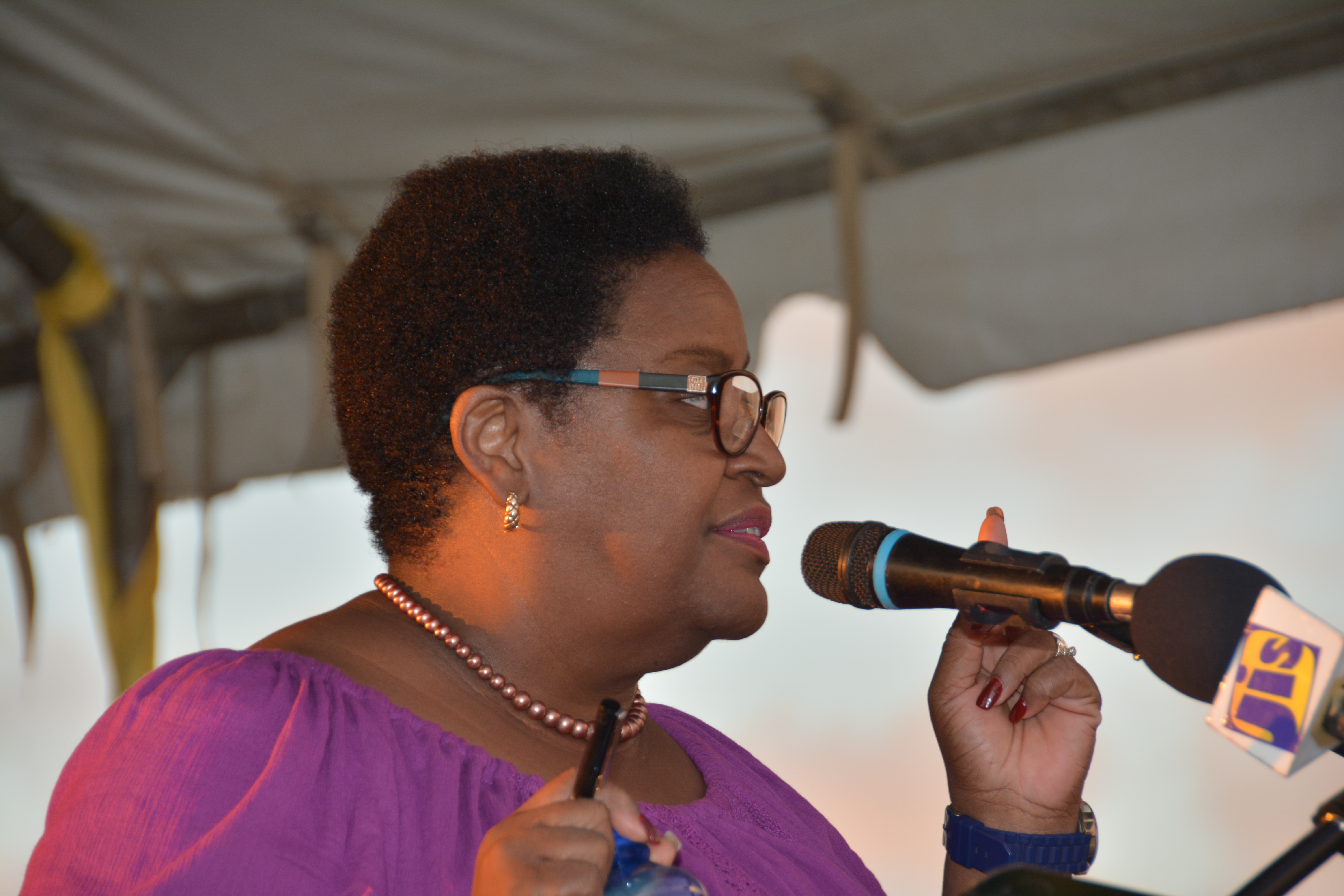Accompong Maroons Hailed for Retaining African Traditions
By: , January 8, 2016The Key Point:
The Facts
- She informed that the Maroons were among the first Americans after the Tainos, who, in the wake of the 1492 invasion of Spain, resisted colonial domination, striving for independence, forging new cultures and identities and developing solidarity out of diversity.
- On January 6 each year, the Accompong Maroons celebrate the anniversary of the signing of the 1739 peace treaty with the British.
The Full Story
Political Ombudsman, Hon. Donna Parchment Brown, has hailed the Accompong Town Maroons of St. Elizabeth for retaining and upholding the African heritage and passing it on to their children and grandchildren.
“Among the several Maroon settlements in Jamaica, Accompong remains the largest … and one of the few places in Jamaica where African heritage in its purest state can be observed. Your heritage has remained relatively untouched by the wider Jamaican society (and I must) thank you for giving us a glimpse through your re-enactments, your dances, music and other preserved forms,” she said.
She was delivering the keynote address at the annual celebration to mark the signing of the peace treaty with Britain and also observe the birthday of Captain Kojo, held on Wednesday (January 6) in the community.
“Today we gather to join with you…in honouring and remembering your courage, strategic planning and skills and to celebrate the memory of Captain Kojo, who led his troops of runaway enslaved Africans and free people, in defeating the power of the British militia, never losing a battle, and in the end, guaranteeing your freedom,” Mrs. Parchment Brown said.
She informed that the Maroons were among the first Americans after the Tainos, who, in the wake of the 1492 invasion of Spain, resisted colonial domination, striving for independence, forging new cultures and identities and developing solidarity out of diversity.
These are processes, she said, “which, only later, took place on a much larger scale in emerging nation states such as the United States of America, Haiti, and Brazil.”
She noted that Jamaica continues to recognise the rights of Maroons in keeping with the United Nations Declaration on the Rights of Indigenous Peoples.
“These rights include the right to maintain and strengthen their distinct political, legal, economic, social and cultural institutions,” the Political Ombudsman pointed out.
The Maroons are the descendants of Africans, who fought British colonisers from mountain hideouts for decades, following the eviction by the British of Spanish colonisers in the 1650s.
On January 6 each year, the Accompong Maroons celebrate the anniversary of the signing of the 1739 peace treaty with the British.
Thousands of persons from across the island, turned out for the annual celebration, which included marching, blowing of the Abeng horn, playing of the Maroon war drums, traditional dancing and singing, and cooking.





